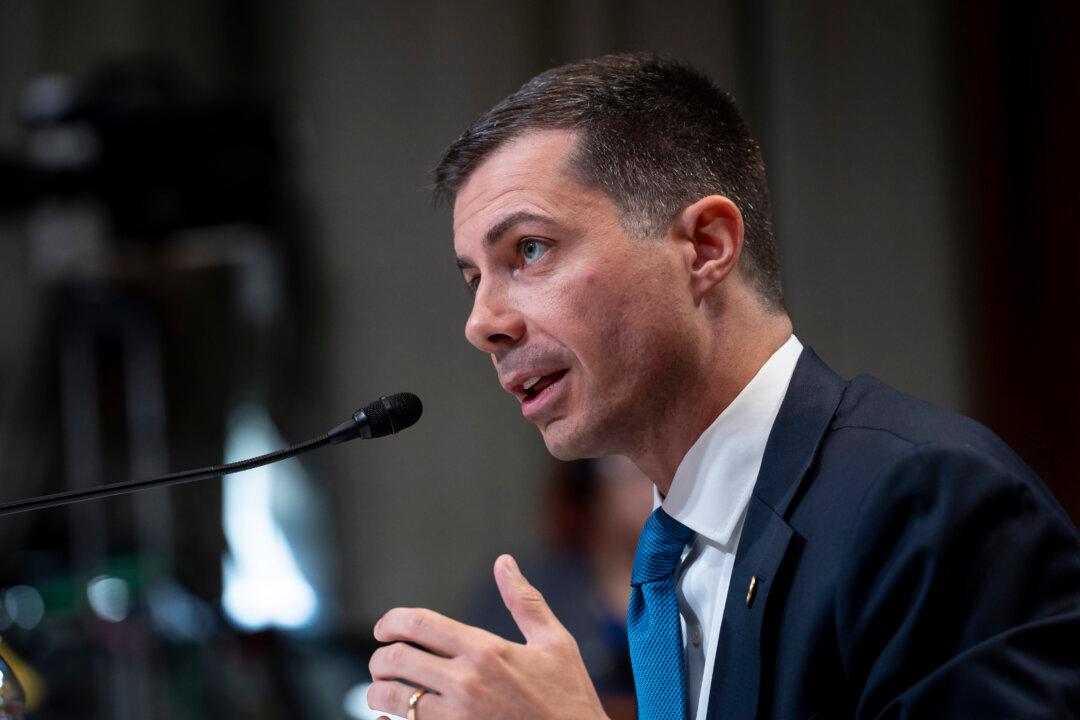Transportation Secretary Pete Buttigieg’s interview, in which he failed to account for the lack of progress in publicly funded electric vehicle (EV) charging stations, demonstrates the Biden administration’s myopic aim for a net zero future, according to an energy policy analyst.
Gabriella Hoffman, a senior fellow at the Independent Women’s Forum’s Center for Energy and Conservation, told The Epoch Times that such short-sightedness is reflected in consumers’ disinterest in purchasing EV vehicles, which appear to have more unknowns than they’re worth.





